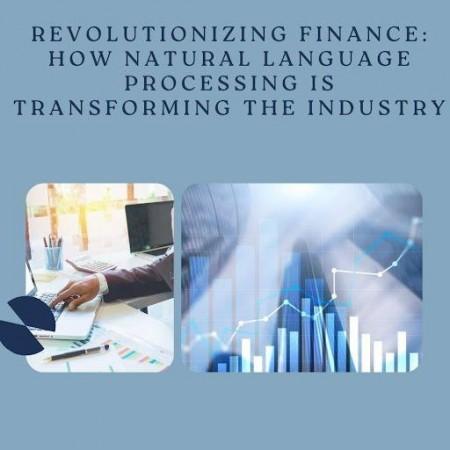
Natural Language Processing (NLP) has emerged as a game-changer in financial technology, revolutionizing automation and enhancing efficiency across various domains. Raghavendra Gandhi Raketla explores the impact of NLP-driven solutions in key areas such as risk management, customer service, and regulatory compliance. By streamlining complex processes and improving decision-making, NLP continues to reshape the financial industry's landscape.
Building a Smarter Financial Ecosystem
With the growing dependence on digital platforms, financial institutions are leveraging Natural Language Processing (NLP) to optimize operations and improve decision-making. NLP enables these organizations to analyze vast volumes of unstructured data, ensuring accuracy in critical areas like fraud detection, sentiment analysis, and risk assessment. By processing large datasets in real time, financial firms can swiftly detect anomalies, predict market trends, and enhance regulatory compliance. This advanced automation not only reduces operational costs but also increases efficiency, allowing institutions to respond proactively to market fluctuations and evolving customer demands.
Enhancing Customer Service with AI-driven Conversations
Chatbots and virtual assistants powered by NLP have transformed customer interactions in the financial sector by automating over 85% of routine inquiries, leading to substantial cost savings. These AI-driven solutions utilize advanced transformer models to process queries with over 94% contextual accuracy, ensuring seamless communication and higher customer satisfaction. By reducing response times and minimizing human intervention, conversational AI enhances service efficiency while lowering error rates. This evolution in AI-driven support allows financial institutions to scale operations, personalize customer experiences, and maintain high service standards.
Risk Management and Compliance: The New Frontier
One of the most critical applications of NLP in finance is its role in compliance and risk management. Automated risk assessment systems powered by NLP have enhanced fraud detection, reducing false positives by 76% compared to traditional rule-based approaches. These systems analyze over a million financial documents daily, ensuring compliance with regulatory standards across multiple jurisdictions. By leveraging pattern recognition and anomaly detection, institutions can proactively mitigate risks while maintaining compliance with evolving financial regulations.
Optimizing Data Processing and Security
Financial institutions rely on NLP-driven data processing pipelines to normalize vast amounts of transactional and financial text data. These systems maintain extensive financial term databases, updating them every 12 hours to ensure accuracy. In security implementation, NLP enhances threat detection, processing millions of security events daily and flagging potential anomalies within milliseconds. Advanced encryption protocols, including AES-256 with quantum-resistant cryptography, have further strengthened financial data security, reducing security breaches by 82%.
Scaling Financial Systems with NLP and Automation
The scalability of NLP in financial applications is evident in its seamless integration with automation technologies like Robotic Process Automation (RPA). This combination has boosted operational efficiency by 225%, significantly reducing manual effort in document verification and transaction processing. Workflow orchestration engines powered by NLP can now manage nearly a million concurrent transactions with near-perfect accuracy, ensuring faster processing, reduced errors, and enhanced regulatory compliance. This transformative approach optimizes efficiency, enabling financial institutions to handle large-scale operations effortlessly.
Quantum Computing: The Future of Financial NLP
As quantum computing advances, its integration with NLP promises groundbreaking improvements in financial analytics. Early implementations of quantum-enhanced NLP models have demonstrated a 300x improvement in portfolio optimization speed and a 180x enhancement in risk assessment accuracy. These technologies will enable financial institutions to process high-volume transactions and conduct complex analyses with unprecedented precision and efficiency.
In conclusion, the continuous evolution of NLP in financial services highlights its potential to revolutionize customer engagement, risk management, and regulatory compliance. As institutions adopt increasingly sophisticated AI models, the financial sector is poised for enhanced efficiency, security, and automation. The innovations explored by Raghavendra Gandhi Raketla demonstrate how NLP is shaping the future of finance, driving an era of intelligent, data-driven decision-making.

















